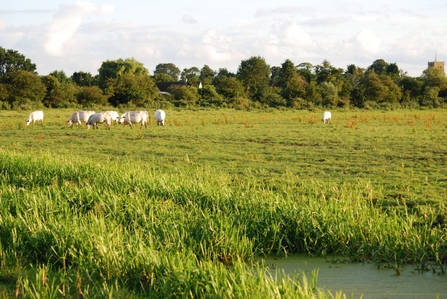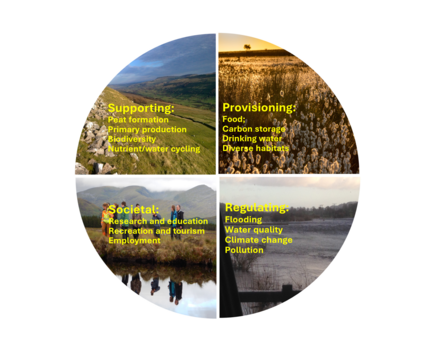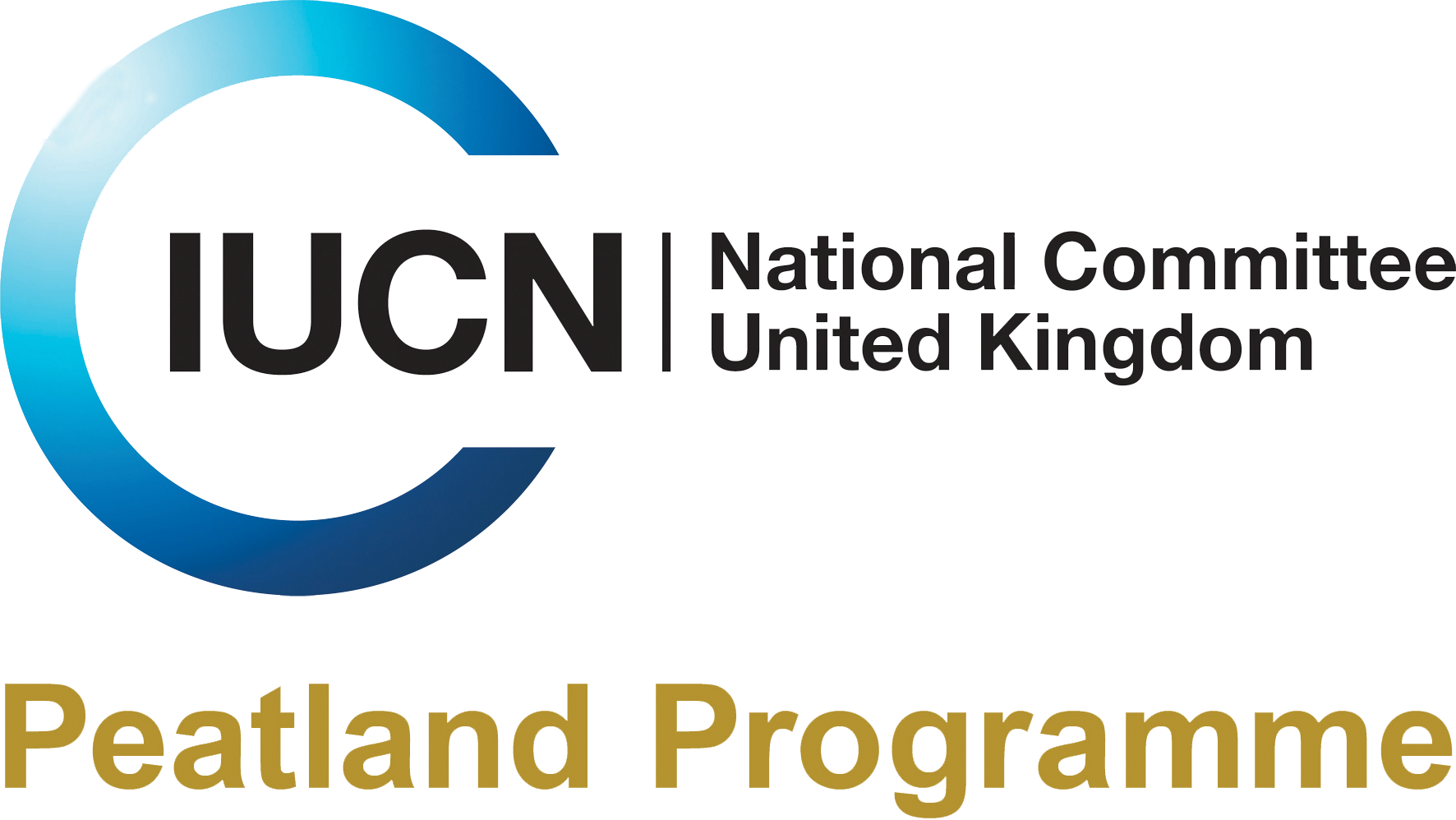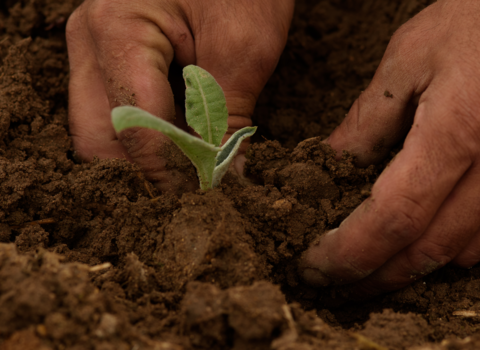Conserving and restoring the UK’s peatlands doesn’t mean that they can’t also be economically viable.
Fully functioning, healthy peatlands with complex biodiversity can provide a multitude of different opportunities for farming, sporting or recreation. Additionally, peatland restoration can be used to generate carbon credits based on the emissions reductions achieved.
Implementation of these options would offer long-term sustainability with minimal intervention required to maintain the habitat, easing pressure on the land, and reducing the need for financial and human input. Equally, it is important to acknowledge that sometimes the most sustainable management is no management or minimal, targeted intervention: this is where green finance may be able to provide a source of income for restoring and conserving peatlands. Carbon crediting is a growing market, and there is great potential for generating income from other ecosystem services such as biodiversity and water provisioning.

Nature-friendly farming brings increased benefits to peatlands. Credit Brian Eversham.
Benefits of sustainable management
Sustainable management can support the provision of ecosystem services such as carbon storage through achieving optimal condition of the habitat. Currently approximately 80% of the UK’s peatlands are degraded, representing a huge area of habitat which would benefit from sustainable management and, by extension, nature-friendly approaches such as paludiculture [LINK TO ADAPTIVE MANAGEMENT PAGE]. Land can also be set aside to make an income through carbon crediting, reducing the resources needed for more intensive land management - something that has proved problematic in the face of people moving away from rural areas.
Whilst agriculture on drained peatlands is claimed to be worth approximately £3 billion per year to UK regional economies 1, the loss of ecosystem services such as soil nutrients and carbon means that farms may operate at a net loss of up to £500 per hectare each year2. The sustainable management of peatlands would have numerous ecosystem service benefits and allow farmers and land managers to diversify their income streams, rather than continuing to farm with potentially diminishing returns on increasingly degraded land.
It is important to recognise that a transition to novel farming and land management approaches will require significant support and sensitivity. Farming is often tied to cultural identity and is a way of life for many, where generations of farmers may have proudly farmed the same land, crops or livestock. Those adopting sustainable land management practices on peatlands should be recognised for the wider benefits LINK TO PEATLAND BENEFITS LANDING PAGE] delivered for society. Financial and legislative support must be provided to help them overcome opportunity costs and dependence on unsustainable peatland management. We explore these issues in our ‘Peatlands and Agriculture’ issues brief [LINK TO AGRICULTURE PAGE].

What are the benefits of sustainable management of peatlands?
Sustainable management across UK peatlands can be achieved through:
- Demonstrating and communicating the benefits of healthy peatland landscapes and peatland restoration, and highlighting the wins for wider society and specific land use activities.
- Involving local communities at an early stage and supporting communities in overcoming any dependencies on unsustainable peatland use.
- Developing economically viable systems for supporting peatland management:
- Providing support for land managers who manage peatland sustainably, ensuring the right level of public funding to overcome any market failures.
- Avoiding public money being directed into fiscal regimes that can result in peatland damage.
References
1. Page S, Baird A, Cumming A, High K, Kaduk J. An assessment of the societal impacts of water level management on lowland peatlands in England and Wales Report to Defra for Project SP1218: Managing agricultural systems on lowland peat for decreased greenhouse gas emissions whilst maintaining agricultural productivity [Internet]. 2020 [cited 2025 May 12]. Available from: https://lowlandpeat.ceh.ac.uk/sites/default/files/2022-07/Societal-Impacts-Report-March-2020.pdf.
2. Graves M, Angus A, Hess A, Lawson T, Camino C, Truckell M, et al. Restoration of Lowland Peatland in England and Impacts on Food Production and Security. Report to Natural England. Cranfield University, Bedford. 2010. Available from: https://www.fensforthefuture.org.uk/admin/resources/downloads/lowland-peatland-restoration-study.pdf.

